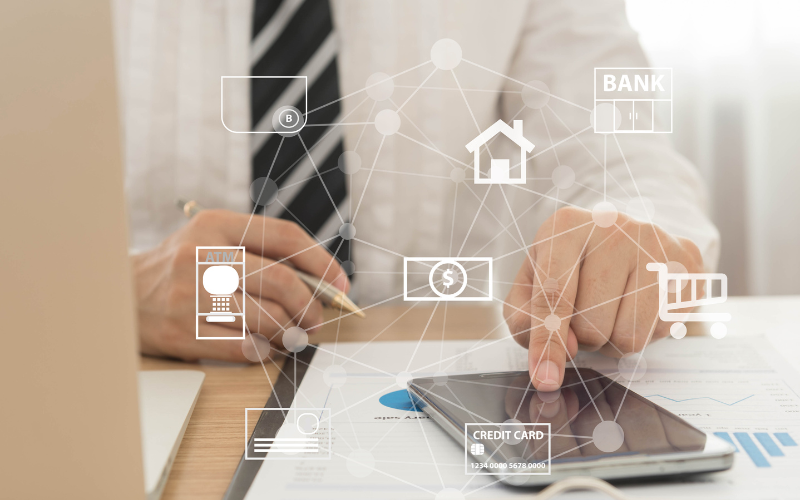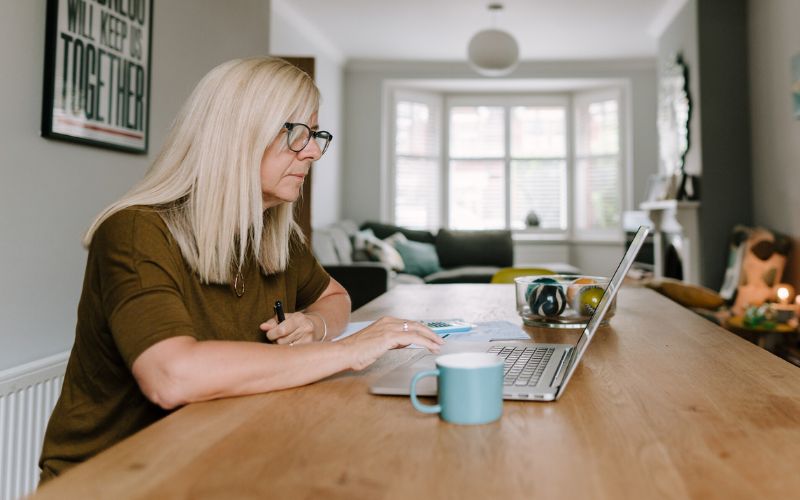Online Banking

Online banking is an easy way to access and control your finances from home or whilst you're on the move using your bank's website or mobile app.
With most banks, you can use online banking to:
- Check your balance any time of day or night
- Check your bank statements
- Transfer money between your bank accounts
- Send money to people you know
- Set-up or cancel direct debits and standing orders.
Setting up online banking
If you already have an account with the bank, then you can sign-up for online banking by registering via their website or mobile app. The safest way to find the correct website is to enter the web address printed on a letter you have from the bank.
If you visit your nearest branch or building society, they will be able to advise you on how to set-up online banking, and may even be able to offer help using the app.
The process of getting set-up with online will differ between various banks.
Banking apps
Most banks or building society will have a smartphone app. You can find the apps in the Google Play Store for an Android phone, or the App Store for an iPhone.
There are unfortunately fake banking apps available to download. Make sure that you are downloading the bank or building society's genuine app. First, check their website for information and call the bank if you are unsure. If you have any communication from the bank like a letter, it might also have information about the app on there too. We have more information available about staying safe online.
Some apps will allow you to save your password or use Touch ID or Face ID to access.
If you need help downloading apps, Age UK has a great guide on downloading apps.
Online bank statements
A great benefit of online banking is that you can easily check past and upcoming transactions on your account.
If you'd prefer, you can still receive monthly bank statements in the post, this should continue if you currently have them delivered. Or you can opt to go 'paperless' and receive statements by email or download them from your online account or on the app.
Your bank will have adaptations available if you have a visual or hearing impairment. Contact your bank if you need extra support receiving your bank statements.
Using online banking safely
Online banking is generally safe but there are steps you can take to make sure you stay safe online. Here's a few tips:
- Don’t re-use the same password that you use on other websites or apps.
- Use a strong password. Avoid passwords made up of common words, numbers or keyboard patterns (such as 'password' or '123456'). Also make sure to not include personal information like your name/surname, any family member's names or your date of birth.
- Never share your full password or PIN number. If you are contacting the bank, they will never ask for your full PIN or password. They will ask for specific numbers or letters, for example, the first and fourth characters of your password.
- When online shopping, make sure to use legitimate websites. If something doesn't feel right, don't continue with your purchase. Make sure that if you're following any links from an email that it's from a legitimate email address.
- Always log out of your online banking session. This is especially important if you use a device that you share with others.
- Be cautious when using a public computer to access your online banking, for example, library computers.
They may not have the right level of security software. Ask the library staff first. - Only use secure Wi-Fi networks to access your online banking. Don't use public Wi-Fi networks, such as those in cafes or train stations – it may be possible for people on the same network to access your details.
- Get into the habit of checking your transactions. If you notice anything you don't recognise, contact your bank straight away.
More support to help you
- Money Helper have some information on staying safe online
- Age UK has a helpful glossary of technology terms
Page last updated: September 2023.

